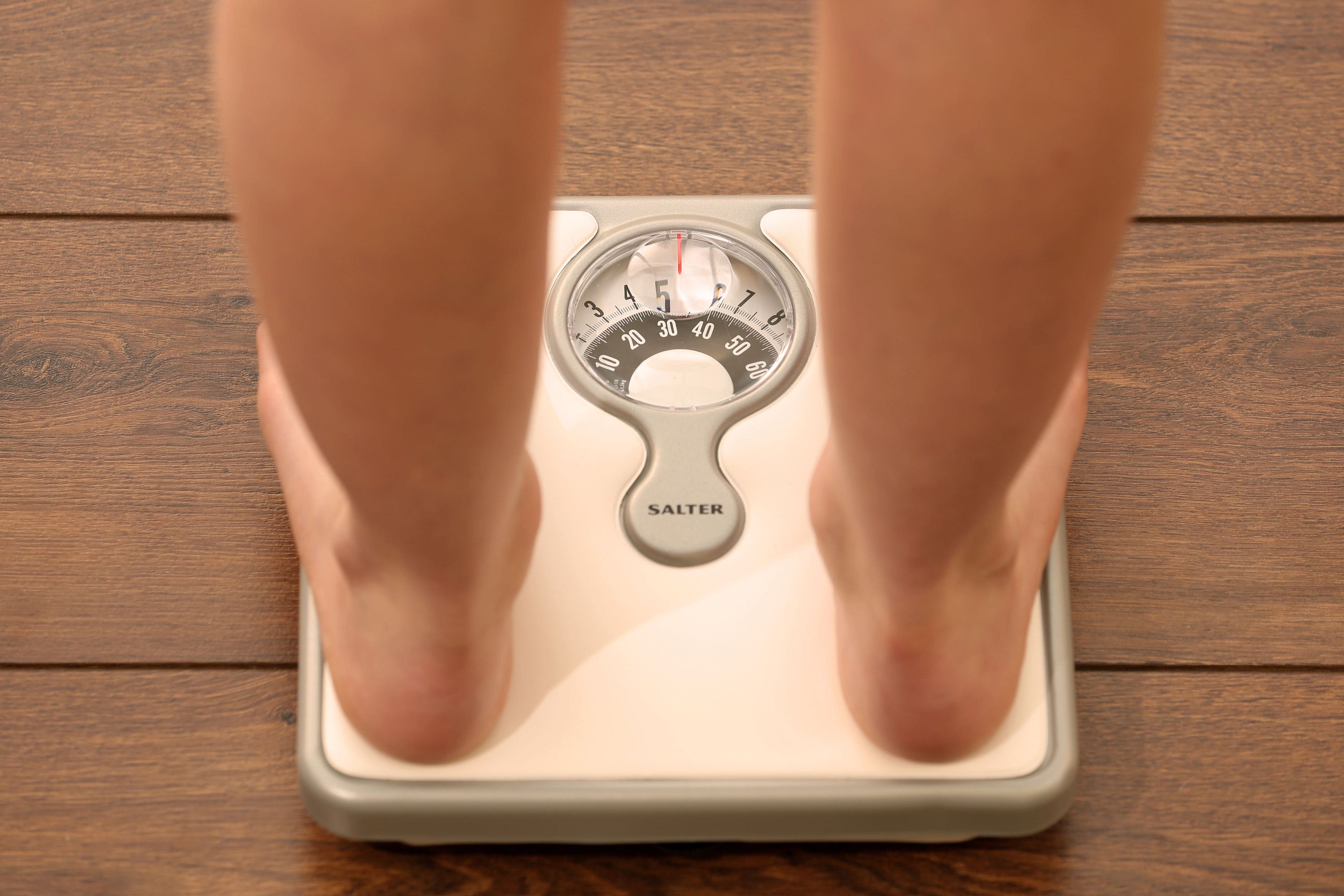For people like me, the NHS ‘soup and shake’ diet could be dangerous
I know from living with anorexia that extreme restriction of your diet can lead to serious problems, writes James Downs


We are constantly told that having excess fat is a danger to our health. Obesity is portrayed as a threat to our society and a drain on our already-overstretched health service. So when new weapons emerge to assist in the war on weight, they hit the headlines as a positive thing.
The latest of these is a new ultra-low calorie diet programme that will be made available on the NHS for people who are overweight with type 2 diabetes. It involves a liquid diet containing 900 kcal of energy a day, for 12 weeks. Evidence from a new study has shown that out of hundreds of patients with type 2 diabetes who tried the shake-and-soup-based diet, about a third of people were able to put their diabetes into remission as well as lose a lot of weight (more than 10kg, in some cases).
As someone who has lived with some kind of eating disorder for over 20 years, I am pleased if people can improve their health through what they eat. For some, it’s vital. And of course, the NHS stipulates that you need to meet three strict criteria to be considered eligible.
However, my own experience after years of disordered eating leaves me with doubts about whether extreme diets are ever the best route to finding a sustainable and balanced state of wellbeing. Some people might have found the diet helpful but what about the two-thirds who didn’t have the same positive outcome? I think there are good reasons to think that there could be serious unintended consequences – both for people who try the intervention and for the message it gives to others.
Firstly, there are real risks for anyone who tries extreme dieting. We already live in a highly fat-phobic society where weight stigma itself can lead to negative health outcomes. People who aren’t able to stick to self-starvation for three months may feel an even greater sense of guilt or blame.
I know from living with anorexia that extreme restriction of your diet can lead to serious problems. Eating disorders shouldn’t be trivialised as “diets gone wrong”, but research has shown that starving yourself for any length of time can tip people who might be genetically vulnerable into anorexic-type thoughts and preoccupation with their weight and shape.
This is what happened to me: the longer I starved myself, the more my thoughts became distorted and took over my life. Eventually, I developed huge cravings for food that I couldn’t control any more. This turned into cycles of binge eating and vomiting (bulimia). Evidence shows that the psychological difficulties of eating disorders can happen at any weight – and that restriction is a key risk factor for developing any kind of eating disorder and staying unwell.
The conversation around eating disorders tends to revolve around stereotypes of deathly thin teenage women with anorexia. But most eating disorders are invisible, with only a small percentage of people being underweight.
Binge eating disorder typically occurs among people with higher weights and is associated with metabolic problems like type 2 diabetes. It is also the most common type of eating disorder but is much less likely to be diagnosed and treated. People with binge eating disorder might ask for this new diet programme without being offered any psychological help, and it could make things worse.
When there is such a lack of understanding about eating difficulties, I am left wondering whether approaches like this really tackle the root causes. By focusing on finding extreme solutions – from ultra-low calorie diets to weight-loss drugs or even surgery – we avoid addressing a range of underlying factors that might cause imbalances in our health.
These might include hidden eating disorders but could also relate to the food environment and education, food insecurity and poverty – plus a whole other range of problems, for which there is no silver bullet.
Medical starvation – which is what this diet is (the brain alone needs up to 500 kcal a day) – might work for a minority of people but what about the rest? And does starving really equip anyone to live healthily when the diet ends?
My own recovery has, vitally, been about learning to live in the grey area and avoiding extremes. I now know how important it is to try to find more balance and flexibility, rather than rely on rules. Yet I only have to open social media to see advert after advert targeting men my age that tell me how to “cut” and “shred” my body with all manner of pills, fasting plans and athlete-level exercise programmes.
I have spent years trying to reject the normalisation of extreme routes to health but now they aren’t just pushed by influencers: they are medically advised.
While we might want to rush ahead with solutions to the nation’s poor health, we need to question whether they are solutions to the right problems. Physical health problems don’t exist in a vacuum – we have to think about mental health, too, and make sure we don’t harm those who are already struggling to find their way through the extremes.






Join our commenting forum
Join thought-provoking conversations, follow other Independent readers and see their replies
Comments